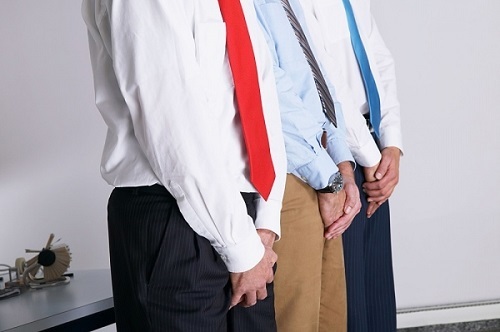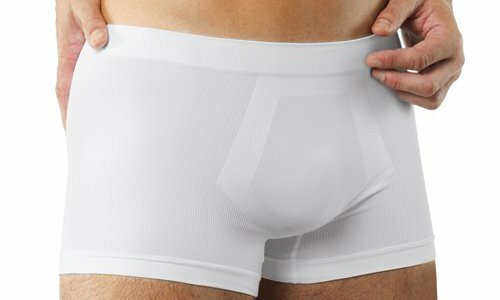Among all health problems that can affect any member of the stronger sex is frequent urination. The phenomenon is considered to be quite serious, as the development of the disease contributes to a number of other, often hidden, and associated with disruption of the genitourinary system. Frequent urination in men is accompanied by a multitude of symptoms, both brightly expressed and not so and serves as a serious signal. If in healthy people the process of urination occurs 6 times a day( maximum), then if the disorder increases several times.

What is the process of urination?
Medicine says that a healthy person 75% of his intake of fluid during the day is released through the kidneys. The remaining 25% is excreted through the intestines and skin. Normal is a three- or fourfold urine discharge through the bladder. But this statement is considered relative, since everything depends on the physiological characteristics of the human body and the state of its central nervous system. If a person has consumed a large amount of fluid per day, it is quite natural that the process of urination will become more frequent as the bladder becomes full.
It is necessary to take into account such factor as the influence of a person's mental and psychoemotional state on the process of urination. It is proved that in impressionable persons the reason for frequent urination is irritation of neurogenic stimulation of the receptors of the walls of the bladder. Rapid filling of the bladder with a nervous breakdown or taking a large amount of fluid is considered normal. With the exception of the factors considered, frequent urination is not considered a normal phenomenon and should become a signal for the visit of a urologist.
Why is urination more frequent?
The main factors of rapid urination are directly related to disruption and infectious diseases of the urogenital system, which are caused by:
- prostatitis;
- adenoma of the prostate;
- with sexual infections;
- pyelonephritis;
- by urethritis;
- by urinary bladder hyperactivity;
- with urolithiasis;
- diabetes mellitus.
Prostatitis
Prostatitis occurs in most middle-aged men and is characterized by inflammatory changes in the prostate gland, which irritates the nervous receptors, accompanied by pain, burning sensation, and cutting with frequent urination.
Prostate adenoma
 Prostate adenoma is considered to be a benign formation characterized by hyperplasia of prostate tissue and an increase in its size. The disease occupies the second line after the prostate in terms of the effect on the process of urination. Precisely to establish the reason of development of an adenoma of a prostate it is not possible yet, but the basic factor is connected with the age of the man. Therefore, among men of advanced and elderly age, the disease is diagnosed most often.
Prostate adenoma is considered to be a benign formation characterized by hyperplasia of prostate tissue and an increase in its size. The disease occupies the second line after the prostate in terms of the effect on the process of urination. Precisely to establish the reason of development of an adenoma of a prostate it is not possible yet, but the basic factor is connected with the age of the man. Therefore, among men of advanced and elderly age, the disease is diagnosed most often.
Sexual infections
Frequent urination in men can occur when reproducing in the genitourinary system of various venereal infections. The most dangerous are: trichomoniasis, chlamydia, gonorrhea. These infections lead to damage to the urinary tract and genital organs, irritating their mucous membranes. As a result of this defeat, the patient is concerned about frequent urination, which worries in the morning mostly. The process is accompanied by painful sensations, the appearance in the urine of small blood veins, mucous secretions of white color. These symptoms should alert the patient and encourage the patient to urgently appeal to a specialist.
Pyelonephritis
Pyelonephritis does not leak without inflammation of the bladder and renal pelvis. Despite the fact that the disease is most often diagnosed in women, men are similarly affected by the inflammatory process, which, as a result of lack of necessary treatment, becomes chronic and leads to the patient being disturbed by frequent urination.
Urethritis
Urethritis is a common disease characterized by acute inflammatory processes of the urethra. The main symptom of this disease manifests itself in the form of severe pain, persistent rubbing and not specific for the patient's discharge from the urethra. In parallel with the listed signs, the patient has a number of urge to urinate.
Bladder hyperactivity
Often, men have bladder hyperactivity, often congenital in nature. A similar phenomenon is characterized by frequent urination at any time of the day( morning, afternoon and night).Any inflammatory changes in the mucosa or tissue of the genitourinary system are absent, there is a contraction of the musculature as a result of the excitation of that muscle of the bladder, which is responsible for the excitation( there is hypertonia in mind).With this pathology, any experience leads to an instant contraction of the bladder and frequent urination.
Urolithiasis
The presence of sand and stones in the urinary tract provokes frequent urination in men. This is due to strong irritation of the bladder and the urethral mucosa. In the absence of competent treatment in the urine, later blood appears, resulting from severe damage to the mucosa.
Diabetes mellitus
 When talking about diabetes, it is necessary to mean such a violation, which is accompanied by frequent urination, a constant thirst, the appearance of itching of the skin, decreased efficiency, the appearance of a feeling of constant and unreasonable fatigue, the onset of sexual disorders and infertility. The insidiousness of this disease lies in the similarity of symptoms in other diseases, so it is diagnosed rather difficult, and in most cases - by accident.
When talking about diabetes, it is necessary to mean such a violation, which is accompanied by frequent urination, a constant thirst, the appearance of itching of the skin, decreased efficiency, the appearance of a feeling of constant and unreasonable fatigue, the onset of sexual disorders and infertility. The insidiousness of this disease lies in the similarity of symptoms in other diseases, so it is diagnosed rather difficult, and in most cases - by accident.
When to sound an alarm?
It is considered abnormal such a process of frequent urination, which is accompanied by:
- painful urges;
- burning;
- severe itching in the perineum;
- presence of an unpleasant odor in the urine;
- presence in the urine of blood, mucus or pus.
Methods of struggle with frequent urination
As with any other disease, frequent urination in men requires a thorough examination and a number of mandatory tests. Such foresight allows the doctor to manage all necessary data on the existing deviations in the work of certain organs of the patient and to choose the most accurate method of treatment.
Treatment is based on the use of conservative and surgical methods, which are selected by the attending physician depending on the identified cause. Conservative treatment methods are caused by:
- gymnastic exercises for muscle strengthening, used in case the patient has bladder hyperactivity;
- is a medicinal therapy of inflammatory and infectious diseases;
- physiotherapy procedures necessary to improve the blood supply of the urogenital system and aimed at accelerating the process of resorption of inflammatory foci.
Regarding operational methods of treatment of the disease, they are divided into:
- sling;
- suprapubic;
- laparoscopic;
- injection of sclerosing agents.
In parallel with the main method of treatment, it is recommended to follow the basic principles of a healthy lifestyle and proper diet. It is believed that the rejection of bad habits( smoking and alcohol), the exclusion from the diet of sharp, salty, bitter foods and dishes, as well as black coffee and tea, will accelerate the healing process and relieve the patient of frequent urination episodes.



